Binance
FTX to be the First to Receive a Virtual Asset Exchange (VAX) License in Dubai – Blockchain News, Opinion, TV and Jobs
Published
2 years agoon
By
admin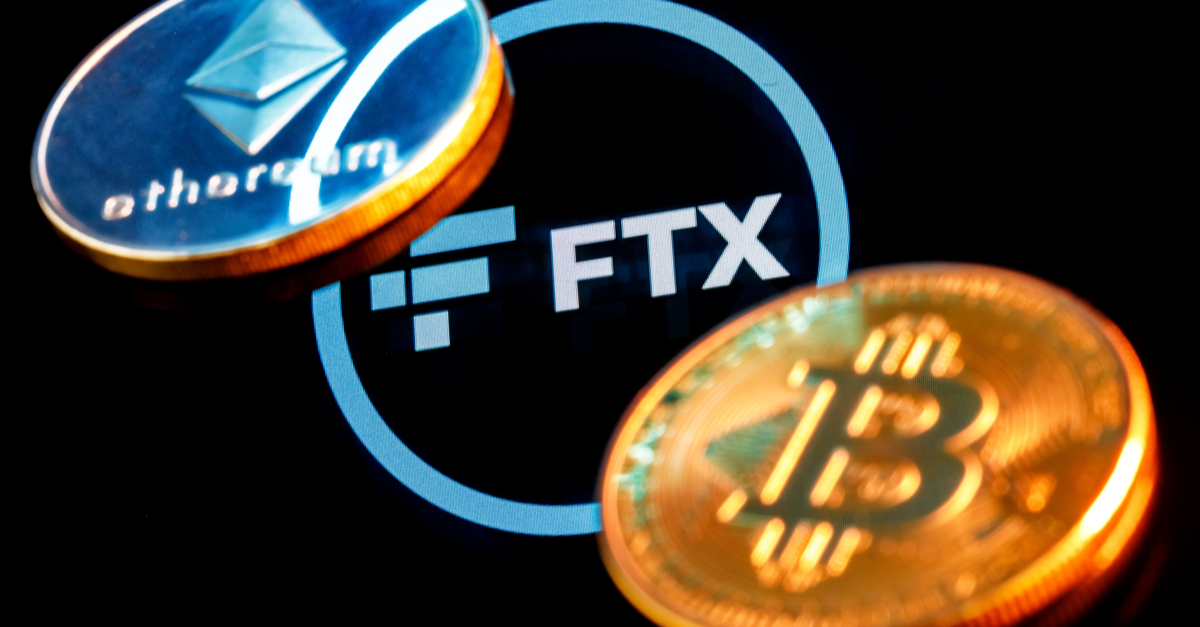
Major global cryptocurrency exchange FTX is receiving a virtual asset exchange (VAX) license in Dubai, and is expanding its operations in the United Arab Emirates.
The VAX license is granted under a new cryptocurrency law and was issued by Sheikh Al Maktoum, creating a legal framework for crypto in the Emirate of Dubai, aimed at protecting investors and “designing much-warranted international standards” for industry governance.
The license allows FTX to operate within Dubai‘s crypto market model, which operates in compliance with global standards.
FTX founder and CEO Sam Bankman-Fried said that FTX had received the digital exchange license from Dubai. “Really excited to receive the first (and so far only) digial asset exchange license from Dubai!” Bankman-Fried tweeted. The company says it’s now planning to establish a regional headquarters in United Arab Emirates’ most international hub and city.
According to Bloomberg, Binance will also get a crypto license in Dubai under the same program, but it seems FTX beat the company to it. Apparently the United Arab Emirates is seeking to attract some of the world’s biggest crypto and fintech companies.
FTX recently reached $32 billion valuation after raising $400 million in a Series C round announced in January. The company has only been founded three years ago, but has already become one of the world’s largest crypto exchanges, in part through their marketing campaign during the Super Bowl.
Just like Binance, FTX’s European and Middle Eastern division FTX Europe was also among the first to join a new crypto hub, in the Dubai World Trade Centre, to create a specialised zone for virtual assets – including digital assets, products, operators and exchanges.
Source link
You may like


Taliban jailed 8 traders for holding and using crypto


Solana Struggles to Rise Amid Bitcoin Price Uncertainty


Developing in Web 3.0 Is on the Cusp of a Breakthrough


Digital Shovel Sues RK Mission Critical for Patent Infringement on Bitcoin Mining Containers


crypto will get positive regulation ‘no matter who wins’ election


Toncoin (TON) v Cardano (ADA): On-chain Data Show Gains
24/7 Cryptocurrency News
Ripple and Coinbase Use Binance Win to Contest SEC Claims
Published
10 hours agoon
July 2, 2024By
admin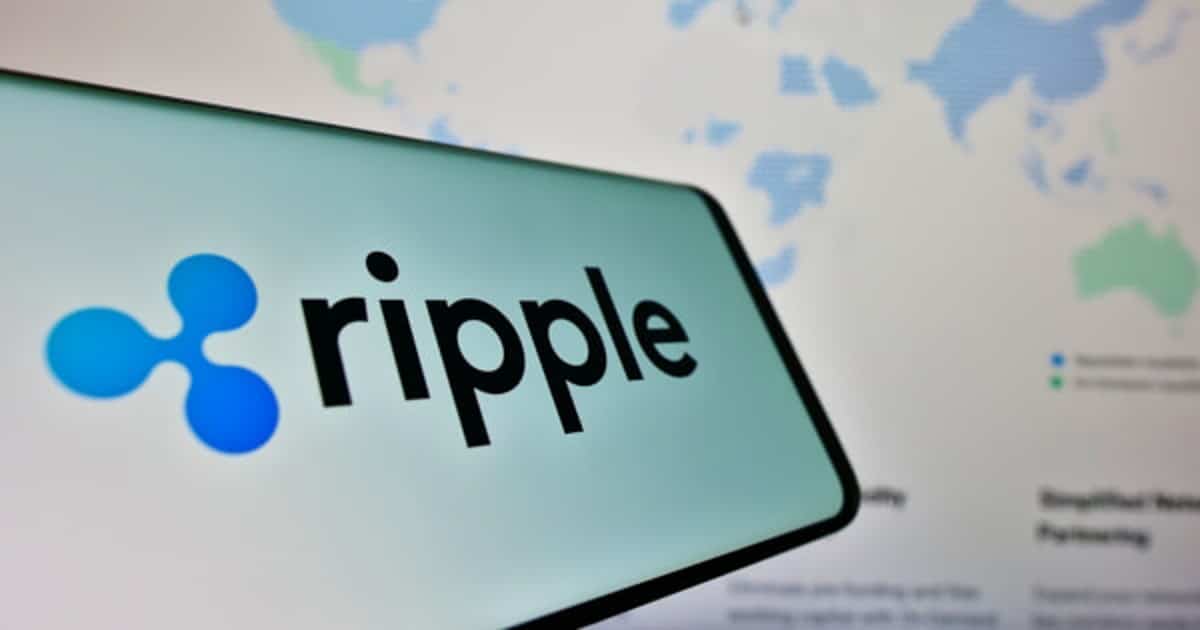
Coinbase and Ripple Labs are using Binance’s pivotal legal victory to challenge ongoing cases with the U.S. Securities and Exchange Commission (SEC). Both companies argue that the SEC’s approach needs more clarity and consistency, necessitating formal rulemaking to better define the regulatory perimeter for digital assets.
Ripple, Coinbase Cite Binance Case Against SEC
Ripple Labs and Coinbase have intensified their legal defenses by referencing a recent court order involving Binance, which achieved a partial dismissal in its SEC lawsuit. The companies argue that this precedent highlights the need for the SEC to establish clear regulations. In its latest court filing, Ripple emphasized the judge’s remark that cryptocurrency does not align seamlessly with existing securities laws, such as those established by the 1946 Howey Test. This test is crucial for determining whether a transaction qualifies as an investment contract and thus falls under securities regulation.
Coinbase has concurrently voiced concerns over the SEC’s expansive interpretation of securities laws applied to the crypto industry. The exchange asserts that this broad application could be more extensive and better defined, pushing for a definitive rulemaking process to provide legal clarity. In its appeal, Coinbase cited the recent Binance ruling to bolster its case for rulemaking, arguing that the decision underscores the inconsistencies in current regulatory applications.
Also Read: Bybit Exchange Unveils Support For ASI Alliance, Will FET Rebound?
Coinbase Demands Clarity in SEC Regulatory Battle
The SEC has engaged with various cryptocurrency platforms and assets, deeming some of their operations as securities offerings without proper registration. In the case of Ripple, the SEC’s lawsuit initiated in December 2020 alleged that Ripple raised over $1.3 billion through sales of its XRP token, which the SEC classified as an unregistered security. However, in a significant turn, Judge Analisa Torres ruled that certain “programmatic sales” of XRP did not constitute securities transactions, introducing a nuanced interpretation Ripple now seeks to leverage to challenge broader SEC claims.
Coinbase faces similar regulatory scrutiny. The SEC argues that the platform operated as an unregistered securities exchange, a claim that Coinbase refutes, urging a formal rulemaking process to clarify these regulatory boundaries. Both Coinbase and Ripple use recent judicial outcomes, notably the Binance case, to argue for a more structured and transparent regulatory framework from the SEC, stressing that the current state of affairs is inefficient and unclear.
Crypto Firms Rally Around Binance Court Decision
The partial victory for Binance in its own SEC lawsuit has become a strategic reference point for other crypto entities embroiled in legal challenges with the regulator. Despite Judge Amy Berman Jackson’s decision to proceed with most of the SEC’s claims against Binance, her dismissal of the charge regarding secondary sales of Binance Coin (BNB) as securities has been perceived as a significant legal precedent. Coinbase and Ripple have particularly highlighted this aspect of the ruling in their ongoing litigation.
Further developments are anticipated, with a scheduled conference for the SEC’s case against Binance set for July 9. Meanwhile, Coinbase and Ripple continue to press for regulatory clarity, which they argue is crucial for the industry’s stability and growth.
Also Read: Genesis Digital Is Considering Going Public Via IPO In US: Report
Maxwell is a crypto-economic analyst and Blockchain enthusiast, passionate about helping people understand the potential of decentralized technology. I write extensively on topics such as blockchain, cryptocurrency, tokens, and more for many publications. My goal is to spread knowledge about this revolutionary technology and its implications for economic freedom and social good.
The presented content may include the personal opinion of the author and is subject to market condition. Do your market research before investing in cryptocurrencies. The author or the publication does not hold any responsibility for your personal financial loss.
Source link
24/7 Cryptocurrency News
Binance Rejoices Partial Victory Against SEC As Legal Battle Continues
Published
23 hours agoon
July 2, 2024By
admin
Binance, a prominent cryptocurrency exchange, is celebrating a significant legal milestone in its ongoing tussle with the U.S. Securities and Exchange Commission (SEC). Binance said that a recent court decision dismissing several key SEC claims against the exchange marks a noteworthy triumph for the broader industry.
Notably, in another update, Binance.US said that it remains vigilant and is prepared for the next phases of this legal journey.
Partial Victory Against SEC
Binance has achieved a partial victory in its ongoing legal battle with the U.S. SEC, as a federal court recently dismissed several of the agency’s major claims. This ruling is seen as a significant win for the crypto exchange and the entire cryptocurrency sector.
In a blog post shared on the X platform, Binance announced, “In a victory for the industry, a U.S. federal court dismissed several SEC claims against Binance.” The post highlighted that the court ruled crypto tokens are not securities, sales of BNB on secondary exchanges were not sufficiently alleged to be securities, and Binance’s stablecoin, BUSD, is not classified as a security.
A Closer Look Into The Report
Meanwhile, the court’s decision, as detailed in Binance’s blog, rebuffed the SEC’s assertion that digital tokens are inherently securities. Notably, Judge Amy Berman Jackson dismissed this broad claim, emphasizing the need to consider the specific circumstances surrounding each transaction rather than labeling the tokens themselves as securities.
This aspect of the ruling challenges the SEC’s strategy of enforcing regulations through broad classifications, aligning instead with the principle that regulatory oversight should be based on transaction context. Moreover, the court rejected the SEC’s argument that secondary market sales of BNB tokens should be treated as securities transactions.
This decision limits the SEC’s ability to extend its enforcement reach to secondary trading activities on crypto exchanges, thereby providing a crucial check on the agency’s regulatory power. Besides, the court found that the SEC failed to demonstrate that purchasers in secondary market sales bought BNB tokens with an expectation of profit, which is a critical component of the Howey Test used to determine whether an asset qualifies as a security.
In addition, the court dismissed the SEC’s claim that Binance’s fiat-backed stablecoin, BUSD, is sold as an investment contract. The court noted that BUSD was promoted as a stablecoin without any indication that investors anticipated its value would rise due to Binance’s efforts. This decision further reinforces the position that stablecoins do not inherently meet the criteria for securities classification.
Also Read: Bitcoin ETFs Gain Momentum With $129M Inflows, Will BTC Price Recover?
Binance Stands Firm Amid As Legal Battle Continues
Despite the favorable rulings, some of the SEC’s claims against Binance were allowed to proceed. The court did not dismiss the SEC’s allegations that direct sales of BNB tokens may constitute securities transactions, as these claims require further examination during the judicial process.
However, Binance.US expressed readiness for the ongoing legal battle, stating in a recent X post, “We were prepared for this and look forward to having this case move forward in the judicial process.” The crypto exchange highlighted its adherence to U.S. regulations and commitment to maintaining 1:1 reserves for all customer assets.
In addition, Binance.US criticized the SEC’s regulation-by-enforcement approach, which has been perceived as politically motivated overreach under the current leadership. The exchange remains confident in its position, asserting that the SEC’s case lacks factual and legal support.
Meanwhile, Binance emphasized its intention to continue serving its customers and advancing its business, underscoring its strong footing and dedication to providing access to digital assets. As the case progresses, Binance’s partial victory is a significant step in the ongoing struggle between regulatory authorities and the evolving cryptocurrency market.
Besides, in a recent development, Coinbase has filed a notice requesting an interlocutory appeal, citing Judge Jackson’s decision in the Binance BNB case. This has also attracted the market attention, with investors keeping a close watch on the shifting crypto regulation.
Also Read: Swiss Government Bank Launches XRP, ADA, SOL, AVAX & DOT Trading
Rupam, a seasoned professional with 3 years in the financial market, has honed his skills as a meticulous research analyst and insightful journalist. He finds joy in exploring the dynamic nuances of the financial landscape. Currently working as a sub-editor at Coingape, Rupam’s expertise goes beyond conventional boundaries. His contributions encompass breaking stories, delving into AI-related developments, providing real-time crypto market updates, and presenting insightful economic news. Rupam’s journey is marked by a passion for unraveling the intricacies of finance and delivering impactful stories that resonate with a diverse audience.
The presented content may include the personal opinion of the author and is subject to market condition. Do your market research before investing in cryptocurrencies. The author or the publication does not hold any responsibility for your personal financial loss.
Source link
24/7 Cryptocurrency News
Binance Warns Of Delisting These Tokens, Price Drop Ahead?
Published
2 days agoon
July 1, 2024By
admin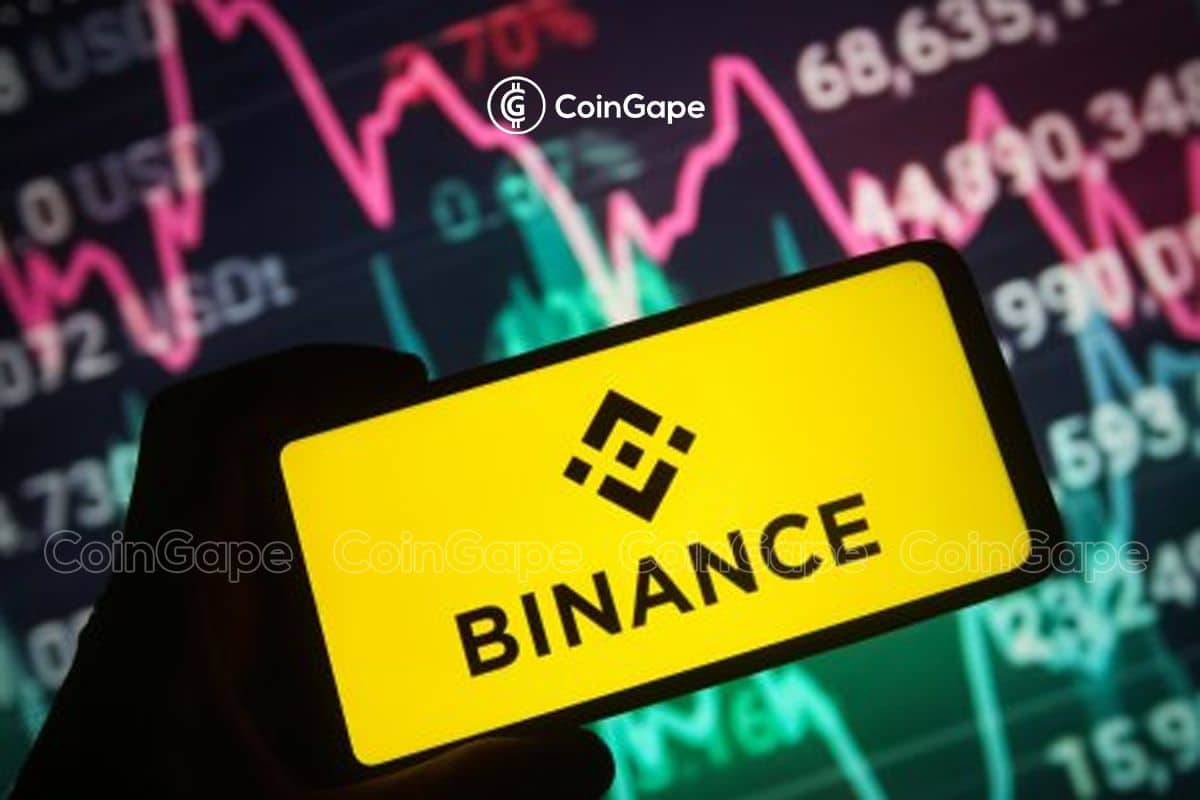
Binance has issued a new warning that has taken the crypto community by storm. The leading cryptocurrency exchange announced plans to extend its Monitoring Tag to 11 tokens, putting them at risk of future delisting.
Meanwhile, tokens affected include Balancer (BAL), and Cortex (CTXC), among others, while Enzyme (MLN) and Horizon (ZEN) will be removed from the risk list. Notably, this development could signal potential price volatility for the affected tokens.
Binance Adds Monitoring Tag To 11 Tokens
Binance’s recent announcement about its Monitoring Tag has sent ripples through the crypto market. As of July 1, the exchange will add several tokens, including Balancer (BAL), Cortex (CTXC), and Convex Finance (CVX), to its Monitoring Tag list.
Meanwhile, as per the announcement, tokens with this tag are considered high-risk and are closely monitored for volatility and compliance with Binance’s listing criteria. The tokens newly added to the Monitoring Tag list are:
Balancer (BAL), Cortex (CTXC), PowerPool (CVP), Convex Finance (CVX), Dock (DOCK), Kava Lend (HARD), IRISnet (IRIS), MovieBloc (MBL), Polkastarter (POLS), Status (SNT), Sun (SUN).
In contrast, Enzyme (MLN) and Horizon (ZEN) will be removed from the Monitoring Tag list. This shift indicates a reassessment of the risks and stability associated with these tokens. However, Binance’s decision to tag these 11 tokens highlights their increased volatility and potential for not meeting the platform’s listing criteria in the future.
Meanwhile, according to Binance, the Monitoring Tag serves as a warning that the listed tokens are under scrutiny and may face delisting if they fail to meet specific standards. These standards include the project’s commitment, development activity, trading volume, network stability, public communication, and ethical conduct.
Binance emphasizes that the Monitoring Tag aims to maintain a healthy and sustainable cryptocurrency ecosystem.
Also Read: 900M SHIB Burn Sparks Optimism Over $0.00003 Price Target Ahead
Price Drop Ahead?
The introduction of the Monitoring Tag for these tokens has significant implications for investors. Historically, announcements of this nature from major crypto exchanges like Binance tend to impact market sentiment and token performance. Positive announcements usually boost market confidence, while warnings and potential delistings can weigh on investors’ sentiment.
Meanwhile, the affected tokens could experience increased price volatility and reduced trading volume as investors respond to the perceived risk. Tokens under the Monitoring Tag are also subject to additional trading restrictions on Binance.
In addition, users must complete a quiz every 90 days to trade these tokens, ensuring they understand the associated risks. This additional layer of scrutiny aims to protect users and promote informed trading decisions.
The announcement underscores the importance of due diligence in the rapidly evolving crypto market. Investors must stay informed about the status and compliance of their holdings, particularly in light of such warnings from leading exchanges. In other words, Binance’s criteria for the Monitoring Tag emphasize the importance of project transparency, network stability, and ethical conduct.
Also Read: Elon Musk Announces JARVIS-Inspired xAI Grok 2 AI Chatbot Release Date
Rupam, a seasoned professional with 3 years in the financial market, has honed his skills as a meticulous research analyst and insightful journalist. He finds joy in exploring the dynamic nuances of the financial landscape. Currently working as a sub-editor at Coingape, Rupam’s expertise goes beyond conventional boundaries. His contributions encompass breaking stories, delving into AI-related developments, providing real-time crypto market updates, and presenting insightful economic news. Rupam’s journey is marked by a passion for unraveling the intricacies of finance and delivering impactful stories that resonate with a diverse audience.
The presented content may include the personal opinion of the author and is subject to market condition. Do your market research before investing in cryptocurrencies. The author or the publication does not hold any responsibility for your personal financial loss.
Source link

Taliban jailed 8 traders for holding and using crypto

Solana Struggles to Rise Amid Bitcoin Price Uncertainty

Developing in Web 3.0 Is on the Cusp of a Breakthrough

Digital Shovel Sues RK Mission Critical for Patent Infringement on Bitcoin Mining Containers

crypto will get positive regulation ‘no matter who wins’ election

Toncoin (TON) v Cardano (ADA): On-chain Data Show Gains

Crypto Markets Like Their Odds With Kamala Harris

How Financial Surveillance Threatens Our Democracies: Part 2

CleanSpark’s amped hashrate mined 445 Bitcoin in June

Ripple and Coinbase Use Binance Win to Contest SEC Claims

DCG, Top Executives Renew Push to Get New York AG’s Civil Fraud Suit Dropped

Introducing Satoshi Summer Camp: A Bitcoin Adventure for Families

US judge approves expedited schedule for Consensys suit against SEC

2 Cryptocurrencies To Buy Boosting Into Top 10

Bitcoin Miners Slow Down Selling In July, What This Could Mean For Price

Bitcoin Dropped Below 2017 All-Time-High but Could Sellers be Getting Exhausted? – Blockchain News, Opinion, TV and Jobs

What does the Coinbase Premium Gap Tell us about Investor Activity? – Blockchain News, Opinion, TV and Jobs
BNM DAO Token Airdrop

NFT Sector Keeps Developing – Number of Unique Ethereum NFT Traders Surged 276% in 2022 – Blockchain News, Opinion, TV and Jobs
A String of 200 ‘Sleeping Bitcoins’ From 2010 Worth $4.27 Million Moved on Friday
New Minting Services

Block News Media Live Stream

SEC’s Chairman Gensler Takes Aggressive Stance on Tokens – Blockchain News, Opinion, TV and Jobs

Friends or Enemies? – Blockchain News, Opinion, TV and Jobs

Enjoy frictionless crypto purchases with Apple Pay and Google Pay | by Jim | @blockchain | Jun, 2022

How Web3 can prevent Hollywood strikes

Block News Media Live Stream

Block News Media Live Stream

XRP Explodes With 1,300% Surge In Trading Volume As crypto Exchanges Jump On Board

Block News Media Live Stream
Trending
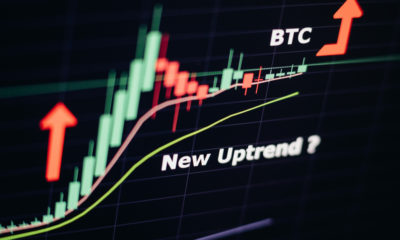
 Altcoins2 years ago
Altcoins2 years agoBitcoin Dropped Below 2017 All-Time-High but Could Sellers be Getting Exhausted? – Blockchain News, Opinion, TV and Jobs

 Binance2 years ago
Binance2 years agoWhat does the Coinbase Premium Gap Tell us about Investor Activity? – Blockchain News, Opinion, TV and Jobs
- Uncategorized3 years ago
BNM DAO Token Airdrop
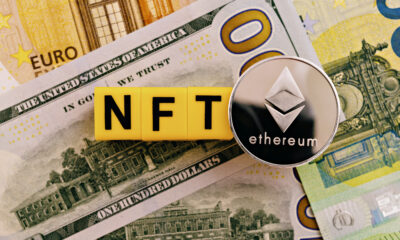
 BTC1 year ago
BTC1 year agoNFT Sector Keeps Developing – Number of Unique Ethereum NFT Traders Surged 276% in 2022 – Blockchain News, Opinion, TV and Jobs

 Bitcoin miners2 years ago
Bitcoin miners2 years agoA String of 200 ‘Sleeping Bitcoins’ From 2010 Worth $4.27 Million Moved on Friday
- Uncategorized3 years ago
New Minting Services

 Video2 years ago
Video2 years agoBlock News Media Live Stream
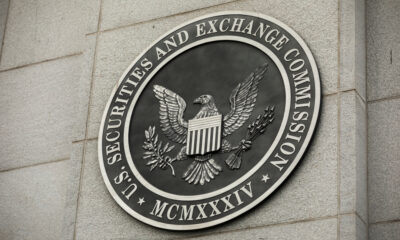
 Bitcoin1 year ago
Bitcoin1 year agoSEC’s Chairman Gensler Takes Aggressive Stance on Tokens – Blockchain News, Opinion, TV and Jobs



✓ Share: